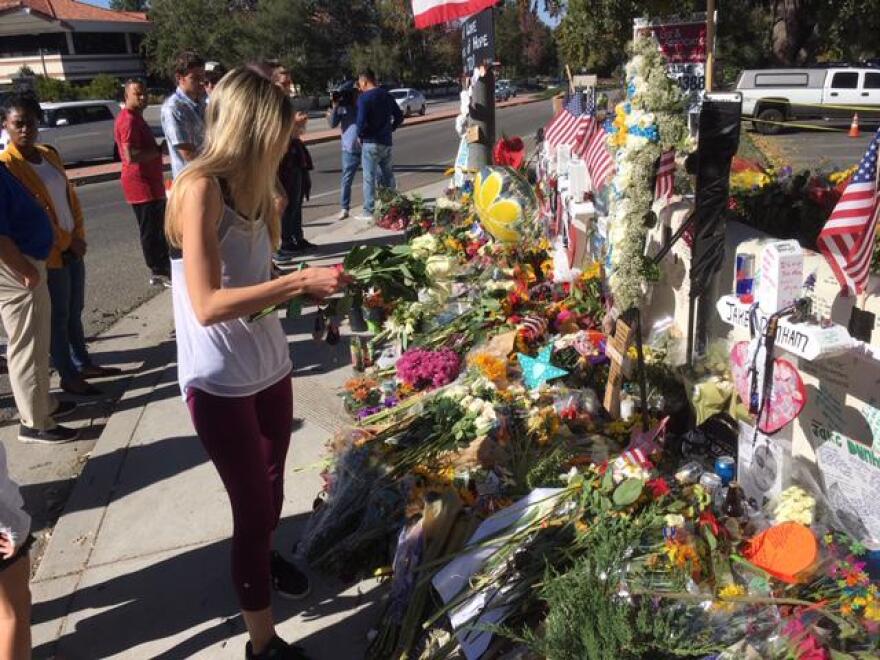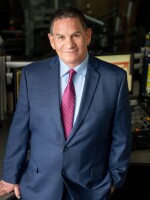It’s been an emotionally trying few years for a Ventura County woman.
Emily Marostica went to the October, 2017 Las Vegas Route 91 Harvest Festival.
She, and one of her friends left the country music festival early to return home, just minutes before a gunman opened fire, fatally wounding 60 people, and injuring hundreds of others. They tried to keep their friends who were fleeing the gunfire calm.
"I was on the phone with my friend...we were Facetiming when things started to happen," said Marostica. "We could hear pops...we didn't really know what it was. The call disconnected, and she called us back and she was telling us someone is shooting at us. We were trying to be the calm for them during the storm, while also having a moment of Oh my God...we were just there."
Fortunately, her friends escaped safely. But, a little more than a year later, she was once again facing a mass shooting. Marostica was at the Borderline Bar and Grill in Thousand Oaks on November 7, 2018 when a gunman randomly opened fire on the crowd. 12 people died.
"My friends and I had used Borderline as a safe haven, as did all of us in the Route 91 community," said Marostica. "It was just another Wednesday. I went with two of my friends who were at Route 91."
They were hanging out by the dance floor, and were eating food, when she heard the first shot. Her father was a police officer, and she knew the sound of gunshots.
"We were actually luckily standing by an emergency exit," said Marostica. "We were the first persons out that door.." The young woman and her friends escaped unharmed.
But, she knew she needed help coping with what she had experienced. After Route 91, she felt like she didn't need to see someone, because others had experienced the trauma firsthand. Marostica said she realized she was wrong, and that therapy is there for anyone who needs it, and she did. She had individual counseling, and also joined a survivors group.
Members of a non-profit organization stepped up to help.
"Give An Hour is a national non-profit in the mental health space," said Shane Meserve, who served as Deputy Director of the organization.
It was founded by a clinician in the Washington, D.C. area after 9/11, who was working with trauma victims. The idea was to create an organization to take away the stigma of mental health services.
Some 4500 clinicians are in the program. They donate their time to help trauma victims at no cost.
The non-profit got a grant through the Ventura County District Attorney's Office for a program to help survivors of the Route 91 Harvest Festival. While the festival was in Las Vegas, the vast majority of people at the event were from Southern California. The program served people in eight counties. After the Borderline attack, it was expanded to include Borderline survivors.
One of the most important aspects of the Give An Hour led effort was connecting survivors with survivors.
"It's hard for people who weren't in the incidents to understand what folks are going through," said Meserve. "One of our big priorities was to connect survivors with each other. People will live it for the rest of their lives."
They trained people to check up on each other on things like drug and alcohol use and suicide awareness. People who have been through mass violence incidents are more likely to die by suicide.
Marostica said the Give An Hour efforts have been critical for her, and other survivors. "I needed to work through the emotions I had been feeling, from not only Borderline, but Route 91, because at that point it had just bubbled up, and bubbled up, and the Borderline added another layer to it."
She said she is doing well now. "I think there's always that little bit of anxiety, that little bit of fear...but I don't let it bulldoze my life. I do pick and choose what I go to, but I don't think I let it hold me back. I go to concerts, I go to sporting events."
The program has received national recognition from victim assistance groups for its efforts. Unfortunately, the grant funding that made it possible has just run out. The hope is that survivors connected through the program will continue to support each other. And, the parent Give An Hour organization still exists to help those in crisis.



